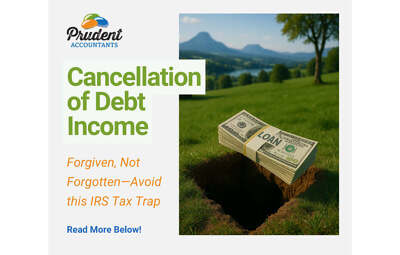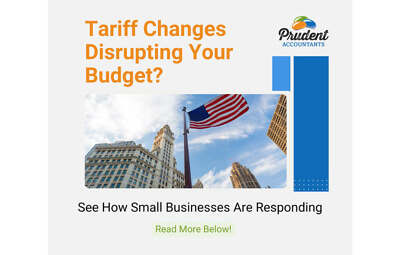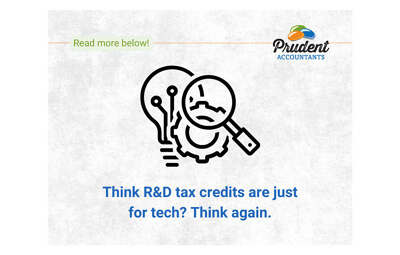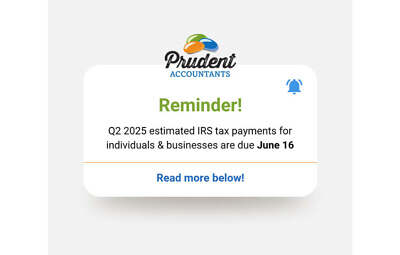Hotels and Other Lodging Establishments Industry Guide – Minnesota Department of Revenue
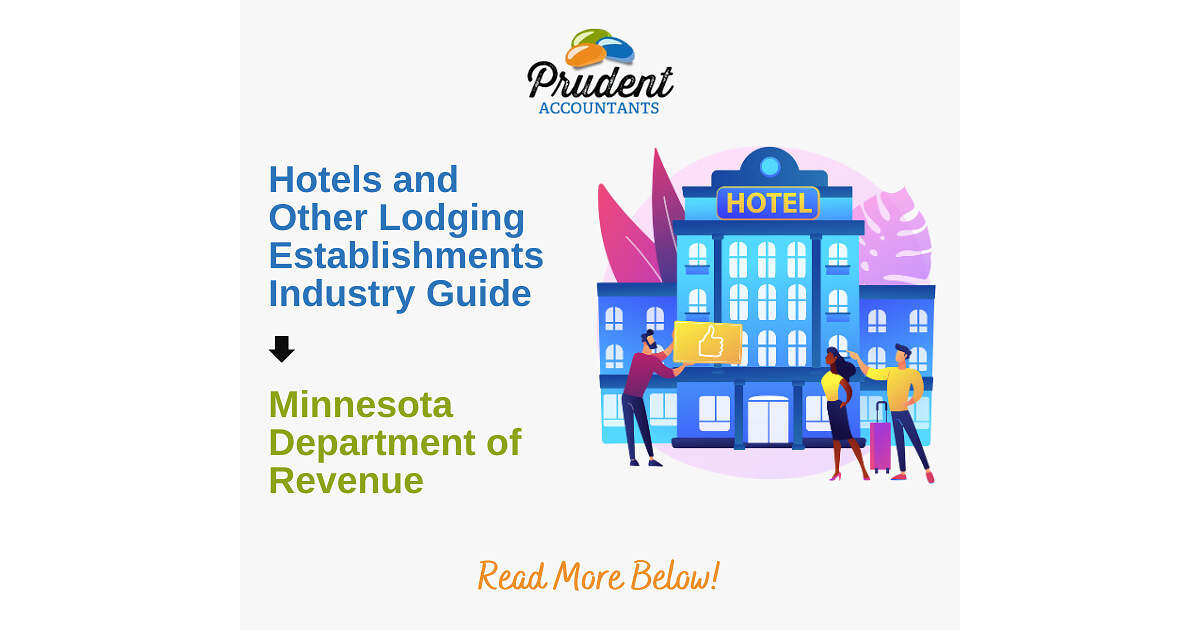
Sales – Lodging and Related Services
Short-term lodging and related services are taxable.
Lodging Rental
Lodging is the rental of a room or rooms for a temporary place to stay or live. Lodging facilities must charge sales tax on short-term lodging and certain related services if the room rental is:
- Less than 30 days
- 30 days or more, with no enforceable written lease agreement.
- An enforceable written agreement must be entered into at the time of sale (day one or before) if the stay will be 30 days or more. The enforceable written agreement must include a termination clause, date, and signature.
Lodging fees may also subject to local sales taxes and city lodging taxes. For more information, see:
Examples of lodging facilities include (but are not limited to):
- Bed and breakfasts
- Campgrounds
- Hotels
- Motels
- Resorts
- Rooming houses
- Trailer camps
- Vacation home rentals
Lodging-Related Services
Lodging-related services provided within a guest room are taxable.
Examples include (but are not limited to):
- Cots, cribs, refrigerators, roll-away beds, and exercise equipment
- Food or liquor from mini-bars and refrigerators
- In-room safes
- Laundry and dry cleaning services
- Pay-per-view movies and video games
- Room service or room delivery, including mandatory tips and gratuities
- Telephone access charges in guest rooms
Local Sales Tax
Some cities and counties have local sales and use taxes. If you are located in or make sales into an area with a local tax, you may owe local sales and use tax. For more information, see Local Sales and Use Taxes.
To determine the sales tax rate, use the location where the product is received by the customer, typically your business or a delivery address. You can use our Sales Tax Rate Map or Sales Tax Rate Calculator to help you determine the sales tax rate.
Note: The map and rate calculator do not include special local taxes.
For more information, see:
Special Local Taxes
Several cities have special local taxes on sales of specific items such as food, liquor, lodging, and entertainment. The Minnesota Department of Revenue administers most of these taxes.
For more information, see:
- Special Local Taxes
- Minneapolis Special Local Taxes
- Revenue Notice 05-11, Local Lodging, Restaurant and Liquor Taxes
Note: Some cities and localities administer their own lodging taxes. For more information, contact each city directly.
Sales – Residential Short-Term Rentals
Residential short-term rentals are a place to stay or live. They are a form of lodging and related services.
Examples of residential short-term rentals:
- Homes
- A portion of a home
- Any other property used for a temporary place to stay or live
Charges for the rentals are subject to the general rate sales tax and any applicable local and lodging taxes. See Sales – Lodging and Related Services.
Facilitating the Sale
Facilitating the sale of lodging includes “brokering, coordinating, or in any way arranging for purchase of or the right to use accommodations by a customer.”
Facilitating the sale of lodging includes both:
- Collecting receipts from the customer of the lodging
- Transmitting the receipts to the owner of the residential property, whether the accommodations intermediary deducts or causes to be deducted any fees or other amounts from those receipts, either:
- Directly by the accommodations intermediary or
- Indirectly through agreements or arrangements with third parties
Facilitating the sale does not include only advertising the availability of the residential property for short-term rental, which directs the customer of the lodging to contact the owner of the property to reserve and purchase the lodging.
For all residential short-term rentals, who facilitates the sales transaction determines who is responsible for the tax. See the chart below for details.
Residential Short-Term Rental Situations |
Who’s Responsible for the Tax* |
The residential property is located in Minnesota and both conditions apply:
|
The property owner must register as a retailer to collect, report, and remit taxes on the full sales price of lodging and related services. |
| The residential property is located in Minnesota and the owner uses the services of an accommodations intermediary to facilitate all sales of lodging at the owner’s property. | The accommodations intermediary must register as a retailer to collect, report, and remit taxes on the full sales price of lodging and related services. |
| The residential property is located in Minnesota and the rental of the business property by the owner is an isolated incident, not made in the normal course of business. See Isolated or occasional sales section below. | The property owner is not required to register or collect taxes on the sale. |
The residential short-term rental is facilitated by both:
|
Both the owner and the intermediary are responsible for sales tax. The sales tax is handled as follows:
|
*You must keep documentation to support who facilitated the sale and was responsible for remitting the applicable taxes on the lodging and related services.
For more information, see Revenue Notice 17-06, Lodging and Related Services – Residential Short-Term Rentals.
Isolated and Occasional Sales
For sales tax, a sales tax exemption will apply to the short-term rental in Minnesota if the sale is isolated or occasional, and not made in the normal course of business of selling lodging and related services. An “isolated sale” happens once. An “occasional sale” is infrequent and does not reoccur with some degree of regularity. Normal course of business is defined as activities that demonstrate a commercial continuity or consistency of making sales or performing services for the purposes of attaining profit or producing income.
For income tax purposes, the Internal Revenue Code (IRC) provides an isolated sale exemption when you rent out for 14 days or less a year a property that you also use as your home. This is an exemption from income tax on that rental income. However, this exemption does not apply to sales tax. Unless a sales tax exemption applies, you must collect sales tax on the short-term rental of your property.
Sales – Fees and Other Charges
Fees and other charges are taxable unless an exemption applies.
Taxable Charges
Fees and other charges by lodging facilities are taxable unless an exemption applies. See the table below for examples of taxable sales.
Taxable Charges |
Examples |
| Admissions and fees for recreational areas and facilities
For more information, see Admissions and Amusement Devices. |
|
| Copy Charges | Charges for copies are taxable, including copies from coin-operated machines. |
| Equipment Rentals | Charges to rent equipment billed separately from a nontaxable meeting room. Examples include:
|
| Fax charges | Charges to send a fax are taxable. |
| Food and beverage sales
For more information, see Eating Establishments. |
|
| Parking services
For more information, see the Parking Service Providers. |
Parking fees are taxable, including:
|
| Recreational equipment rentals | Charges to rent:
|
|
Coin-operated entertainment and amusement devices For more information, see Vending and Other Coin-Operated Devices. |
The use of all entertainment and amusement devices is taxable. Examples include:
|
| Vending machines
For more information, see Vending and Other Coin-Operated Devices. |
Starting July 1, 2017, the only taxable food sold through vending machines or honor boxes is prepared food, soft drinks, candy, and dietary supplements. Previously, all food sold through a vending machine was taxable. |
Tips and Service Charges
Voluntary Tips
Tips that a customer voluntarily leaves or adds to a credit card receipt are not taxable.
Tips and Service Charges Added by Seller
Tips or service charges a seller adds to the bill are taxable, even if the tip amount is given to employees. The table below shows which taxes apply.
Tips or Service Charges for These Items: |
Are Subject to These Taxes: |
| Food only |
|
| Liquor only |
|
| Food and liquor combined (see note below) |
|
Note: If you can divide the tip or service charge to show what portion is for food versus liquor, do not collect the 2.5% liquor tax on the food portion. You must keep records showing how you determined the tax.
Telephone Charges
Charges for the actual cost of a telephone call are not taxable if they are separately stated on the guest’s bill. (Because the charge from the phone company to the hotel includes sales tax.)
Charges for making the telephone service available to guests are taxable. For example, if a hotel charges 50 cents per local call, it is an access charge and it is taxable.
Telephone Call Accounting Systems
Many hotels use “call accounting systems” to track and determine the amount to charge guests for long distance phone calls.
If you use a call accounting system, you must:
- Charge sales tax on the total amount billed to a guest for their long distance telephone service.
- Pay sales tax to the telephone company for all telephone services.
Note: If you can distinguish between telephone calls billed to guests and your own administrative use, you may adjust the taxable amount reported on your sales tax return. To do this, subtract the actual costs of the long distance calls made by guests from your taxable sales.
Damage Charges
Damage charges may or may not be taxable depending on what kind of property was involved.
For Damage to: |
The Charges are: |
| Tangible items such as equipment or boats | Taxable |
| Real property such as a hotel room or building | Not taxable |
| Combination of tangible items and real property | Taxable (The entire charge is taxable unless the nontaxable portion is separately stated.) |
Gift Shop Sales
Gift shop sales are taxable, except for food, clothing, and drugs. For examples, see the table below.
Taxable |
Nontaxable |
| Candy | Clothing |
| Dietary supplements | Drinks that contain 50 percent or more juice |
| Grooming and hygiene products | Grocery items |
| Magazines and periodicals | Newspapers and tabloids |
| Soft drinks | Over-the-counter drugs |
No-Show Charges
No-show charges – for when a room was held for a customer who neither arrived nor canceled the reservation – are taxable because a sale was made.
Nontaxable Sales
Certain services and sales are not taxable.
Examples of nontaxable services and sales
- Coat check
- Messenger service
- Rentals of meeting rooms or banquet halls
- Rented space for vendors (sales tax is due on the portion of the rent that is attributable to use of the equipment, phones, furniture, parking spaces, etc.)
- Vending machine sales of clothing (swimsuits, pantyhose, etc.), feminine hygiene products, aspirin and other drugs, and postage stamps.
Cancellation Charges
Cancellation charges are not taxable because the room was cancelled; no sale occurred and no sales tax is due.
Gift Certificates and Gift Card Sales
Gift certificates and gift cards are not taxable when sold. When a customer redeems a gift certificate or gift card, charge sales tax on any taxable portion of the purchase. Apply the amount of the gift certificate or card as a cash payment.
Sales to Schools and Nonprofits
Lodging is taxable when sold to schools, school districts, and nonprofit organizations, even when billed directly to the school or nonprofit organization. They cannot use Form ST3, Certificate of Exemption, to purchase lodging exempt from sales tax.
Direct Pay Authorization
Businesses cannot use their Direct Pay authorization to buy lodging, meals, or other services exempt from tax.
Complimentary Services and Package Deals
Supplies to provide complimentary services are taxed differently than supplies used to provide package deals.
Complimentary Services
Complimentary services (or items) are those given to the customer as a courtesy with no additional charge.
Examples include:
- Complimentary breakfast
- Free birthday dessert
- Free drink in response to a customer complaint
- Shampoo, conditioner, and soap
Note: A complimentary breakfast is when the customer has access to breakfast and the charge for their room stays the same whether they eat the meal or not.
Purchases for Complimentary Services
Hotels and lodging facilities that provide complimentary services must pay sales tax when they buy inputs to those services. This includes disposable items such as plates, napkins, and silverware. See the Taxable Purchases section.
Purchases of Complimentary Items
Hotels or lodging facilities that provide complimentary items must pay sales tax on the purchase of those items.
Package Deals
Package deals – when a group of related products or services is sold for one specified price – are taxable. The customer pays sales tax on the entire cost of the package.
Examples include:
- A couples package that might include a room, wine, dinner for two, and chocolate
- A family package that might include a room and free meals for children
Note: Hotels and lodging facilities may purchase inputs for these deals exempt for resale. This includes disposable items because they are included in the taxable price paid by the customer. Give your vendor a completed Form ST3, Certificate of Exemption. Specify the Resale exemption.
Discounts and Coupons
Discounts and coupons allow customers to buy lodging at a reduced price. The taxable price depends on if you are reimbursed for the discount or coupon being redeemed.
Are you reimbursed by a third party? |
Charge sales tax on: |
| Yes | Total sales price before your subtract the discount amount |
| No | Sales price after you subtract the discount amount |
Daily Deal Website Vouchers and Coupons
Generally, customers buy discount vouchers and group coupons online and then bring them to the retailer for the discount.
The purchase of a discount voucher is not taxable. If the item (or service) is taxable, charge sales tax when the voucher or coupon is redeemed. See the following table for details.
Do you know how much the customer paid for the voucher? |
Charge sales tax on: |
| Yes | Amount paid for the discount voucher |
| No | Face value of the discount voucher |
Note: You must keep records showing how you calculated the tax.
For more information, see Coupons, Discounts, and Other Forms of Payment.
Sales to Government
Sales of lodging to government agencies may or may not be taxable, depending on what type of agency purchases the lodging. See the following table for details.
Who is the customer? |
The following conditions apply |
| Federal government |
|
| State government | Lodging sold to state government agencies is taxable. This includes the state of Minnesota and all other states. State agencies must pay the state general rate sales tax and any local taxes that apply.
Note: Minnesota agencies cannot use their Direct Pay authorization to buy lodging exempt from sales tax. |
| Local government | Local governments – located in- and outside Minnesota – must pay the state general rate sales tax on lodging. Examples include:
Note: Local governments are not required to pay local sales tax. But they must pay special local taxes such as lodging or food and beverage taxes. For more information, see Special Local Taxes. |
| Tribal governments and members | Short-term lodging for tribal officials on an Indian reservation is exempt if both of the following apply:
Short-term lodging and related services for tribal officials outside an Indian reservation are exempt only when the tribal government has a tax agreement with the Minnesota Department of Revenue. All Minnesota tribal governments have an agreement except for the Prairie Island Mdewakanton Community. For more information, see Tribal Governments and Members. Note: Rooms are taxable when rented by a tribal government for use by others as part of a promotional package or for any similar business use. |
| Foreign Officials | Foreign officials may purchase lodging exempt if they provide you with a valid consular ID card that shows the purchase is exempt from sales tax.
For more information, see Government – Federal Government. |
Purchases
Depending on how an item or service is used in your business, it may or may not be taxable.
Taxable Purchases
Items you use to operate your business are taxable unless an exemption applies. Several services are also taxable. If you do not pay sales tax on a taxable purchase, then use tax is due. See the table below for specific examples.
Taxable Purchases |
Examples |
| General items |
|
| Lodging and other complimentary service items |
|
| Cooking and serving equipment |
|
| Utilities |
|
| Taxable services |
For more information, see Taxable Services. |
| Promotional items |
|
Use Tax
If you buy equipment, supplies, or other taxable items for your business and the seller does not charge Minnesota sales tax, you owe use tax on the cost of the items. If your business is located in an area with a local tax, you may also owe local use tax.
Some common situations where you may owe use tax include:
- You buy taxable items or services online without paying sales tax
- You withdraw an item from inventory to use (instead of selling it), donate, or give away
- You buy taxable items outside of Minnesota
- You buy taxable items in another Minnesota city or county with a lower (or no) local sales tax
For more information, see Use Tax for Businesses and Local Sales and Use Taxes.
Nontaxable Purchases
Items for Resale
You may purchase items exempt for resale if both of these conditions apply:
- You sell the item at retail or hold the item exclusively for lease or rental to the customer
- The charges for these items are separately stated from the lodging accommodations
To purchase items exempt for resale, give your seller a completed Form ST3, Certificate of Exemption.
Examples of items for resale include:
- Guest laundry services
- Paper cups, napkins, etc. sold as part of a meal or drink (except for complimentary meal or drink)
- Pop, candy, and other items sold at retail or in vending machines
- Recreational equipment to be rented separately
Coin-Operated Entertainment and Amusement Devices
Retailers may buy these devices exempt from tax if they sell admissions to or use of the devices.
Examples of coin-operated entertainment and amusement devices include:
- Fortune-telling machines
- Pool tables
- Batting cages
- Jukeboxes
Note: Vending machines, lottery devices, or gaming devices do not qualify for this exemption.
For more information, see Vending Machines and Other Coin-Operated Devices.
Filing Returns and Record-Keeping
When filing your return, you must report all sales tax collected and use tax you owe.
Filing Returns
When filing your return, you must report all sales tax collected and use tax you owe.
If you are not registered for sales and use tax, you must contact the Minnesota Department of Revenue and register to collect and report taxes. Call Business Registration at 651-282-5225 or 1-800-657-3605 (toll-free).
For more information, see Sales Tax Return Due Dates.
How to Report Sales and Use Tax
You must file a Sales and Use Tax return online through our e-Services system. For more information, see Filing Information.
Record-Keeping
It is important to keep good records to determine the correct amount of state and local tax you owe.
Your records should include:
- Bills, receipts, invoices, cash-register tapes, and any other documents that support the entries in your books
- Exemption certificates
- Shipping documents
- Worksheets used to prepare your tax returns
For more detailed and specific information on Hotels and Other Lodging Establishments , you can visit at Hotels and Other Lodging Establishments Industry Guide – Minnesota Department of Revenue

